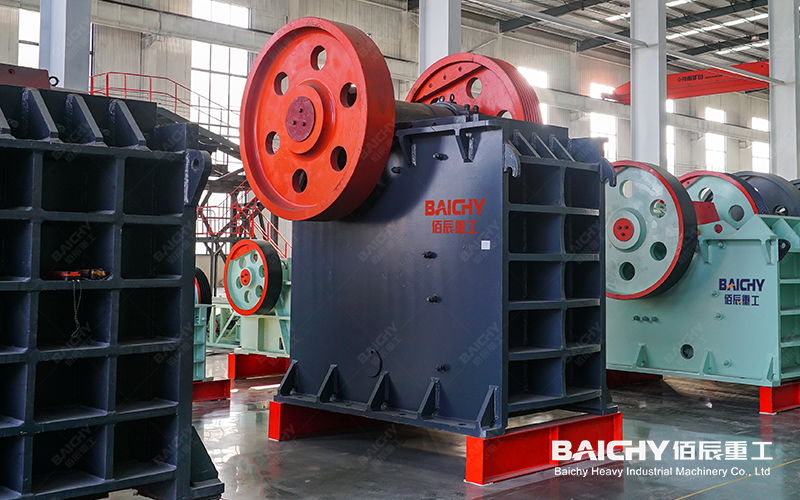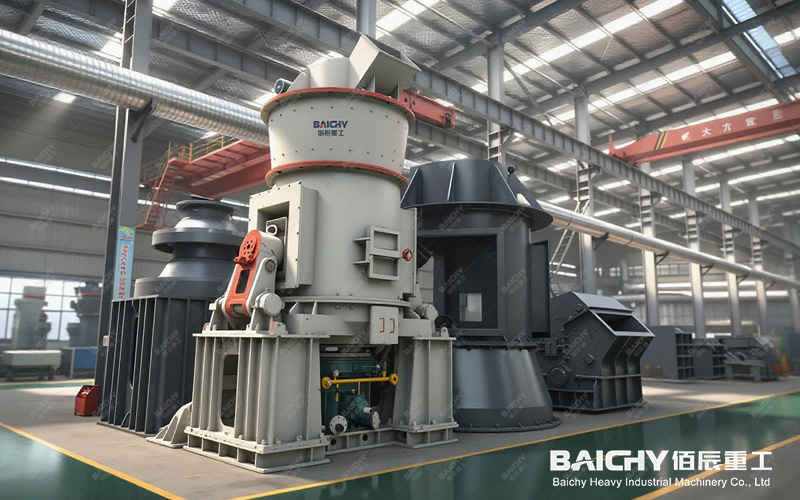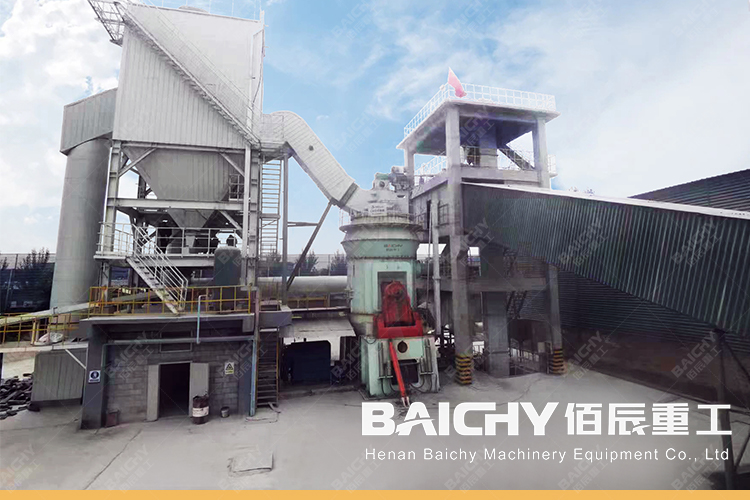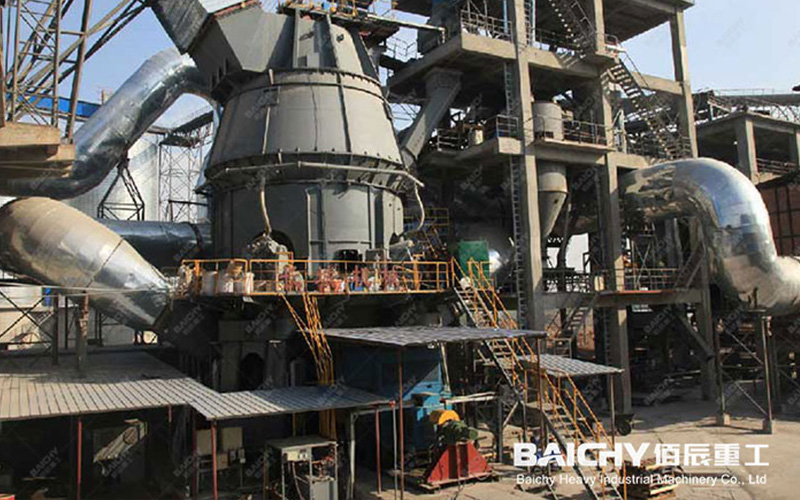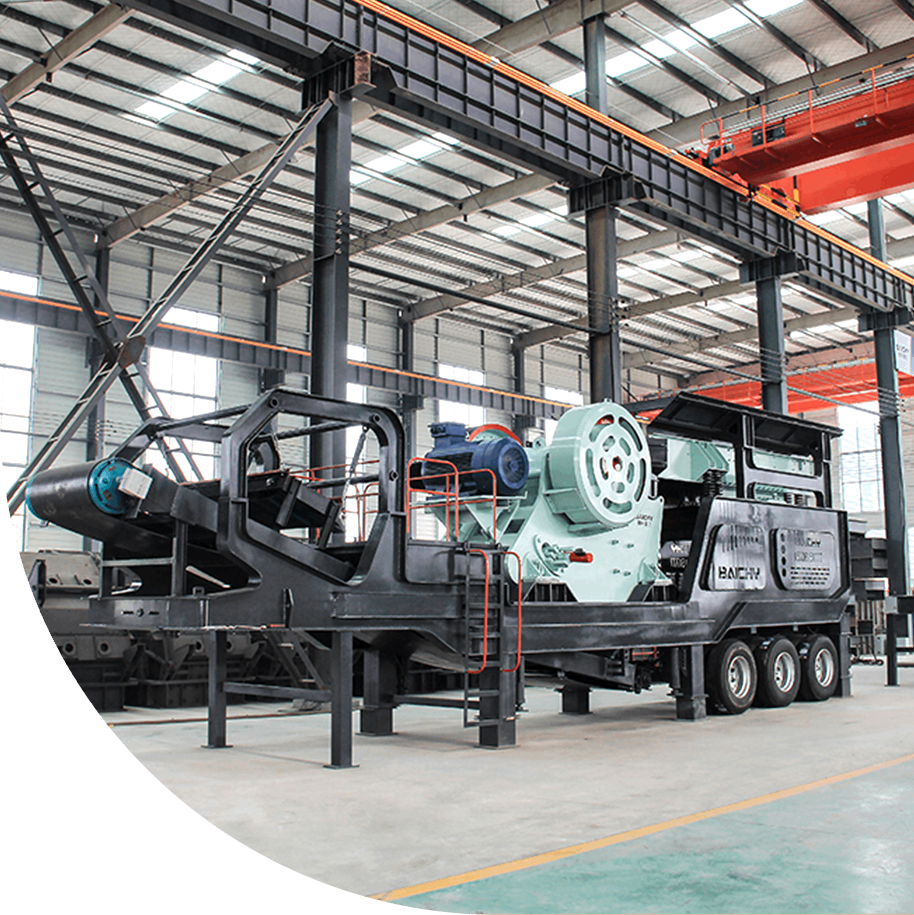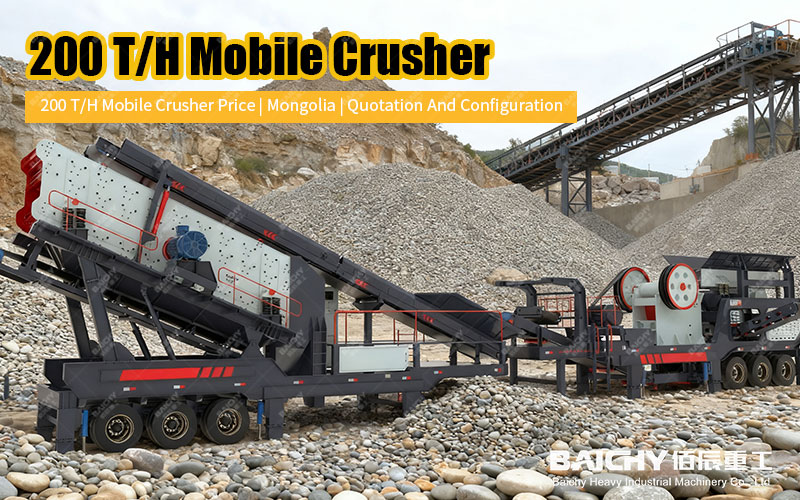
Mongolia boasts a vast territory and abundant mineral resources, with infrastructure development still in its early stages. Traditional fixed production lines suffer from long installation cycles and relocation difficulties, failing to meet the operational needs of dispersed mining areas and short project cycles. Mobile crushers, with their absolute advantages of high mobility, rapid relocation, integrated operation, and on-site crushing and screening, have become the preferred equipment for Mongolian mining and construction contractors. This article will focus on the 200-ton/hour capacity model, which has the highest market demand, and analyze its price structure in depth.
I. Core Types and Price Ranges of 200-ton/hour Mobile Crusher
A capacity of 200 tons/hour is a common requirement for medium to large-scale projects. Based on different crushing principles and material hardness, they are mainly pided into the following types, with significant price differences.
1. Mobile Jaw Crusher
• Applicable Materials: River pebbles, granite, basalt, and other medium to high hardness materials, mainly used for primary crushing (coarse crushing).
• Price Range: US$250,000 - US$450,000 (approximately RMB 1.8 million - 3.2 million)
• Features: Robust structure, high crushing ratio, the "main force" for processing hard materials.
2. Mobile Cone Crusher
• Applicable Materials: High-hardness ores (such as iron ore, copper ore), granite, etc., mainly used for secondary crushing (medium and fine crushing).
• Price Range: US$300,000 - US$550,000 (approximately RMB 2.15 million - 4 million)
• Features: High crushing efficiency, good finished product particle shape, relatively long wear part life, but higher purchase cost.
3. Mobile Impact Crusher
• Applicable Materials: Limestone, construction waste, and other medium to low hardness materials, can be used for secondary crushing.
• Price Range: US$200,000 - US$400,000 (approximately RMB 1.4 million - 2.85 million)
• Features: Excellent finished product particle shape, relatively low investment cost, but the hammer plates wear out quickly for highly abrasive materials.
4. Mobile Screening Station (if required to form a production line)
• Price Range: US$80,000 - US$200,000 (approximately RMB 550,000 - 1.4 million)
Note: The above are approximate price ranges for a single main unit. A complete mobile crushing production line capable of simultaneously producing multiple specifications of finished products typically requires a combination of a jaw crusher + cone crusher/impact crusher + screening station, with a total price potentially exceeding US$600,000 to US$1 million.
II. Key Factors Affecting Price
Why is there such a large price fluctuation for equipment with the same capacity of 200 tons/hour? The main factors to consider are as follows:
1. Brand and Origin:
◦ International top-tier brands (e.g., Sandvik, Metso, Outotec): Advanced technology, high reliability, comprehensive global after-sales network, highest price.
◦ Chinese top-tier brands (e.g., Sany Heavy Industry, XCMG, Zoomlion): Extremely high cost-performance ratio, mature technology, fast after-sales service response, continuously increasing market share in Mongolia, the mainstream choice.
◦ Other brands: More competitively priced, but equipment stability and after-sales service guarantees need careful consideration.
2. Core Configuration and Customization Level:
◦ Engine: Environmentally friendly and efficient engines from well-known brands (e.g., Volvo, Cummins) increase costs.
◦ Control System: Higher levels of automation and intelligence result in higher prices.
◦ Materials and Wear-Resistant Parts: Equipment using high-strength steel and imported wear-resistant parts has a higher initial investment but lower long-term operating costs.
◦ Customization Needs: Customization for Mongolia's unique climate and operating conditions, such as dust protection, low-temperature starting, and tire specifications, will increase costs.
3. Suppliers and After-Sales Service:
◦ Whether a supplier has an office, warehouse, and professional technical team in Mongolia directly impacts equipment uptime and long-term operating costs. Suppliers providing localized services may have slightly higher quotes, but can save you significant downtime losses.
III. Special Considerations for the Mongolian Market
• Logistics and Customs Duties: Logistics costs, customs clearance fees, and VAT for transporting equipment from China or Europe to Mongolia must be included in the total budget.
• Climate Adaptability: Mongolian winters are harsh; it is necessary to ensure the equipment is equipped with low-temperature starting devices and cold-resistant hydraulic fluid, which may incur additional costs.
• Spare Parts Supply: Before purchasing, it is essential to confirm the supplier's spare parts inventory and supply cycle to avoid prolonged production stoppages due to waiting for parts.
IV. Summary and Procurement Recommendations
The total cost of ownership (TCO) for a 200-ton/hour mobile crusher used in a Mongolian project extends far beyond the purchase price. It should also include operating costs, maintenance costs, and residual value.
Procurement recommendations for Mongolian clients:
1. Define Requirements: First, determine the hardness of the material to be crushed, the feed and discharge particle size requirements, and select a suitable model (single machine or production line).
2. Compare Options: Obtain detailed configuration plans and quotations from at least 2-3 reputable suppliers for comprehensive comparison.
3. Emphasize After-Sales Service: Use the supplier's after-sales service capabilities in Mongolia as a core evaluation indicator.
4. Consider Financing: For large projects, consult with equipment suppliers about financial solutions such as financing leases to alleviate financial pressure.
Ultimately, the most expensive equipment is not necessarily the best choice. The equipment best suited to your project conditions and capable of generating the greatest long-term benefits is the truly "cost-effective" option.




